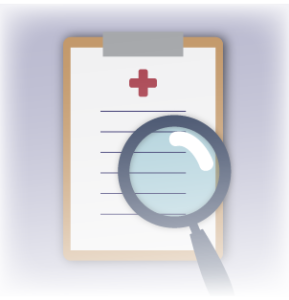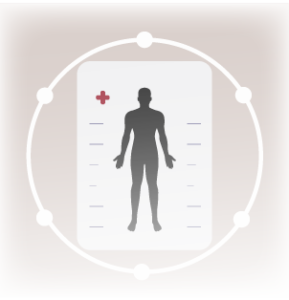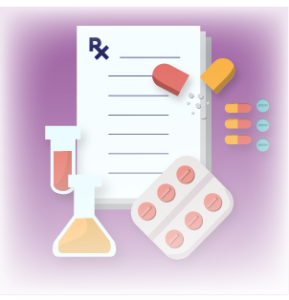Top tips:
- Depression is common in cirrhosis, and should be differentiated from isolated somatic symptoms
- Validated tools should be used to screen for depression
- Treatment is dependent on the severity.
- Treatment options include lifestyle modification, psychotherapy and pharmacotherapy
- Limited research exists on the use of antidepressants in cirrhosis. Dose adjustments are often necessary to account for decreased hepatic metabolism
- Suicidality and severe depression with loss of function warrant more urgent assessment and treatment
Navigation

Check out the bottom of the page for short videos from Dr. Mitchell!
Depression is common in patients with cirrhosis. It may predate liver disease or occur as a result of physiological or psychological changes associated with the illness process.
There are a variety of validated screening tools to identify ‘at risk’ individuals. The diagnosis of depression requires a clinical interview.
More urgent assessment and possible admission is warranted in the situations of suicidality, depression with emergent psychotic features (hallucinations or delusions) and/or severe depression with functional impairment.
The diagnosis of depression can be complicated by overlapping somatic symptoms (such as low energy, fatigue, and low appetite)
- Biological: anemia, uremia, neurotoxins and possibly inflammation
- Comorbidities: diabetes, cardiovascular disease
- Functional impairment: due to pain, dyspnea, edema or increased abdominal girth, as well as comorbidities such as dementia
- Treatment-related: medications, pain, fatigue, discomfort, personal or family history of mood disorders
- Psychological: difficulty with adaptation, role changes, life goals, uncertainty, body image, traumatic experience(s)
- Social: changes in relationships, job, financial stressors, social roles, intimacy-sex, social isolation, recent move, poverty, cultural or language barriers
- Lifestyle: lack of exercise, poor nutrition, sleep disturbances
Consider non-pharmacological management in all patients with mild depression.
These therapeutic techniques can be learned using online resources (apps) or bibliotherapy in situations where access to a therapist is difficult.
Cognitive Behavioral Therapy (CBT) and Mindfulness-Based Stress Reduction (MBSR) are both effective for the management of depression in chronic illness.
If non-pharmacological therapy alone fails, consider adding pharmacological therapy, especially in cases of moderate to severe depression. There is limited evidence to guide the use of specific antidepressants in cirrhosis.
- SSRIs and SNRIs need to be dose adjusted by 50% given impaired hepatic metabolism
- SSRIs may also increase the risk of bleeding, especially if on an antiplatelet agent
- Desvenlafaxine is the only antidepressant that does not undergo significant metabolism by the liver
| Medication: | Recommended Dose | Additional information |
|---|---|---|
| (Before use, see the product monograph, for complete side effect list) | ||
| Well-tolerated | ||
|
Citalopram (SSRI) |
10 mg PO daily |
GI bleed risk, can lower seizure threshold, risk of QT prolongation, caution with eGFR <20 mL/min. |
|
Mirtazapine |
15 mg PO nightly |
Caution with eGFR <30 mL/min (start with 7.5-15 mg, and titrate with close monitoring. |
|
Escitalopram (SSRI) |
5 mg PO daily
|
GI bleed risk, can lower seizure threshold, risk of QT prolongation, caution with eGFR <20 mL/min. |
| Sleep disturbance | ||
|
Sertraline (SSRI) |
25 mg PO daily
|
GI bleed risk. |
|
Mirtazapine |
15 mg PO daily
|
Caution with eGFR <30 mL/min (start with 7.5-15 mg, and titrate with close monitoring. |
| Fatigue/Low energy | ||
|
Fluoxetine (SSRI) |
10 mg PO daily
|
GI bleed risk. |
|
Venlafaxine (SNRI) |
37.5 mg PO daily
|
GI bleed risk, nausea. |
|
Desvenlafaxine (SNRI) |
50 mg PO daily
|
GI bleed risk, nausea. |
| Low Appetite/Nausea | ||
|
Mirtazapine |
15 mg PO daily
|
Caution with eGFR <30 mL/min (start with 7.5-15 mg, and titrate with close monitoring. |
| Co-morbid Neuropathic Pain | ||
|
Venlafaxine (SNRI) |
37.5 mg PO daily
|
GI bleed risk, nausea. |
|
Desvenlafaxine (SNRI) |
50 mg PO daily
|
GI bleed risk, nausea. |
| Co-morbid Anxiety | ||
|
Venlafaxine (SNRI) |
37.5 mg PO daily
|
GI bleed risk, nausea. |
|
Desvenlafaxine (SNRI) |
50 mg PO daily
|
GI bleed risk, nausea. |
|
Sertraline (SSRI) |
25 mg PO daily
|
GI bleed risk. |
|
Paroxetine (SSRI) |
10 mg PO daily
|
GI bleed risk. |
Once initiated, an antidepressant treatment should be re-assessed at 2 weeks using validated questionnaires (e.g. PHQ-9, HADS) to evaluate response.
If there is no change in symptoms at 2 weeks, there is a low likelihood of remission at 8 weeks, and an adjustment in dose or a change of medication is warranted.
A full trial of an antidepressant at an effective dose is 6 to 8 weeks.
- Non-response to at least two trials of treatment (at an effective dose for a sufficient duration) OR
- Severe symptoms and functional impairment.
This section was adapted from content using the following evidence based resources in combination with expert consensus. The presented information is not intended to replace the independent medical or professional judgment of physicians or other health care providers in the context of individual clinical circumstances to determine a patient’s care.
Authors (Alphabetical): Amanda Brisebois, Sarah Burton-Macleod, Ingrid DeKock , Martin Labrie, Noush Mirhosseini, Nicholas Mitchell, Mino Mitri, Kinjal Patel, Aynharan Sinnarajah, Puneeta Tandon, Sarah Tymchuk
Thank you to pharmacists Omer Ghutmy and Meghan Mior for their help with reviewing these pages.
Helpful links:
- Patient Health Questionnaire-9 (PHQ-9): https://www.albertahealthservices.ca/frm-19825.pdf
References:
- Barboza KC, Salinas LM, Sahebjam F, Jesudian AB, Weisberg IL, Sigal SH. Impact of depressive symptoms and hepatic encephalopathy on health-related quality of life in cirrhotic hepatitis C patients. Metab Brain Dis. 2016 Aug;31(4):869-80. doi: 10.1007/s11011-016-9817-y. Epub 2016 Mar 31. PMID: 27032930.
- Davison SN on behalf of the Kidney Supportive Care Research Group. Conservative Kidney Management Pathway; Available from: https//:www.CKMcare.com.
- Mullish BH, Kabir MS, Thursz MR, Dhar A. Review article: depression and the use of antidepressants in patients with chronic liver disease or liver transplantation. Aliment Pharmacol Ther. 2014 Oct;40(8):880-92. doi: 10.1111/apt.12925. Epub 2014 Sep 1. PMID: 25175904.
- Wilcock A, Charlesworth S, Prentice W, Selby P, McKenna M, Cripps S, Considine A, Orr A, Wright M, Mihalyo M, Oxberry S. Prescribing in Chronic Severe Hepatic Impairment. J Pain Symptom Manage. 2019 Sep;58(3):515-537. doi: 10.1016/j.jpainsymman.2019.04.034. Epub 2019 May 9. PMID: 31077785.







